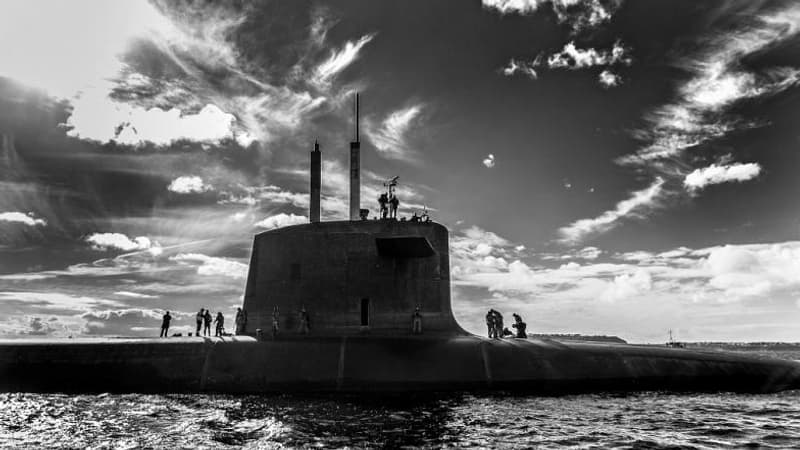Thales has been selected to develop sonars to equip future French third-generation ballistic missile (SNLE) submarines, scheduled for 2035, the technology group announced Monday.
This “big” contract for an amount of 300 to 500 million euros was awarded by the General Directorate of Armaments (DGA) for the equipment of this submersible program, an oceanic component of the French nuclear deterrence force, whose design was put into March in early 2021. This will replace the Le Triomphant-class SSBNs, currently in service and launched between 1994 and 2008. Hence its qualification as “SNLE 3G”, for the third generation since the launch of the first French SSBN in 1967 .
Technological advances
The contract refers to a “complete set” of sonars, including a towed antenna, but also flank and bow sensors. Under the terms of this agreement, Thales will design and develop the “probe suite” for 3G by 2035, but will also supply this new equipment for one of the current generation submarines as part of a modernization programme.
With “numerous technological advances”, Thales mentioned equipment “based on powerful algorithms for massive data processing (big data)”, which “will guarantee perfect control of the acoustic situation in the coming decades in the face of increasingly silent threats”. .
Discretion and detection capacity.
A program for which several billion euros have already been released, the 3G submarines, whose main industrial contractor is Naval Group with TechnicAtome for the nuclear boiler rooms, will be destined to sail until 2090. Equipped with a crew of 110, they will be 138 meters long for 14,300 tons in a dive.
At Thales, which claims the title of “world leader in the submarine warfare market” and 60 years of experience in this field, work on the new sonars will occupy about a hundred people within two years, mainly at the Sophia site. -Antipolis, near Lindo.
France views deterrence as its life insurance against threats to its existential interests. Its SSBNs, four in number to have one permanently on patrol, form the basis of its nuclear strategy, and their effectiveness depends as much on their discretion as on their detection capabilities.
Source: BFM TV


